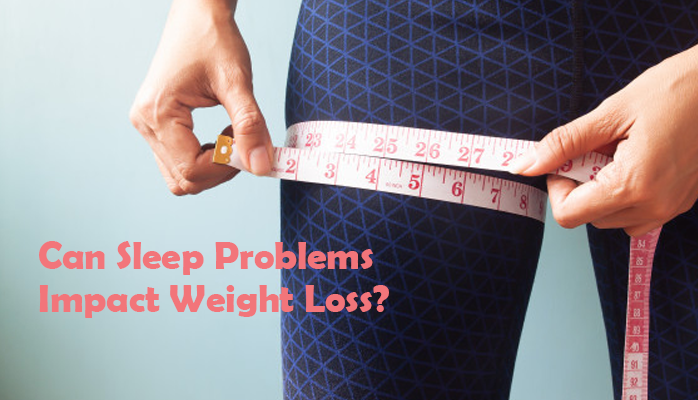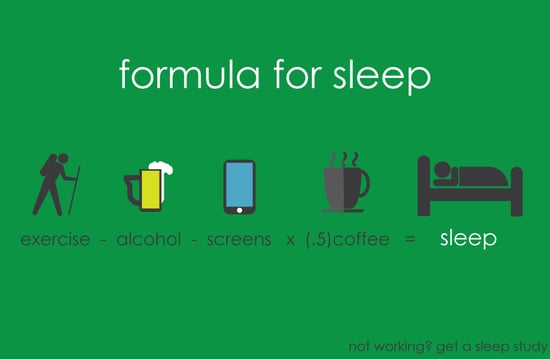
Many individuals face the frustrating dilemma of working towards their weight loss to no avail. Although they follow the most common methods to shed pounds like dieting and exercising, they see no difference on the scale.
If you or someone you know can attest to this experience, there's a chance that a lack of sleep may be contributing to your inability to lose weight. Many aspects of achieving a good night's rest directly affect the body's potential to slim down.
Poor Sleep and its Effect on Weight
According to a sleep study conducted to analyze sleep duration and obesity published on Healthline, people generally observed negative fluctuations in weight when they achieved less than seven hours of sleep on a nightly basis. Sleep duration increased the probability of obesity by 89% in children and 55% in adults.
A longer-scale study following about 60,000 non-obese nurses for 16 years found that nurses who slept five or less hours were 15% more likely to be obese than those who slept for at least seven hours every night.
In addition, an experimental sleep deprivation study allowed 16 adults only five hours of sleep every night for five nights in a row. These adults gained 1.8 pounds on average in less than a week.
Sleep and Appetite
Part of the reason that a lack of sleep impacts an individual's ability to lose weight is because sacrificed sleep results in a greater appetite. Ghrelin and leptin, two powerful sleep hormones, fluctuate if the body doesn't get the proper amount of sleep each night. These fluctuations leave a person hungrier because the brain is unable to signal fullness in the stomach.
Another hormone that affects hunger is cortisol. Cortisol, a stress hormone that controls mood, motivation, and fear, oscillates when sleep is sacrificed. This reaction also increases the chances of overeating.
Sleep and Activity Level
We all know that exercise burns calories and stimulates the metabolism. If someone doesn't get the recommended 7 hours of sleep at night, it's more likely that he or she will be less motivated to engage in physical activity. In addition, a person will grow more tired earlier on in their workout making their activity less effective.
Fifteen men who participated in a study found that the amount and intensity of their workout drastically decreased when they were sleep-deprived. In another investigation, a college basketball team enrolled players in a study wherein they spent 10 hours in bed every night for 5-7 weeks. These players showed improvement in their accuracy, their speed, and their reaction times during games.
Sleep and Insulin Resistance
Sugar plays a large part in a person's capacity to shed pounds. Insulin, known as the "sugar hormone," moves sugar from the bloodstream into the body's cells. When excess insulin is produced in the body, it makes an individual hungrier and tells the body to store calories as fat.
Due to the fact that poor sleep can cause cells to become insulin resistance, it causes many people to gain weight instead of lose it. Insulin resistance is also a precursor for type 2 diabetes.
Even a few nights of sacrificed sleep can impact the body's ability to maintain insulin levels. As blood sugar levels are controlled by the proper amounts of sleep, it's highly important for people to get seven hours or more in order for their insulin levels to remain balanced.
How to Achieve a Better Night's Rest

If you find yourself struggling with weight loss and think that a lack of sleep might be to blame, here are some basic tips that may help you increase the number of hours you sleep every night:
- Minimize the light in your room: Turn off bedside lamps, night-lights, and get blackout curtains for your windows. Also, turn off all screens including those on your cell phone and computer.
- Make your bedroom a relaxing place: Invest in a good mattress, eliminate clutter, take work out of the bedroom, read up on feng shui, and diffuse calming essential oils such as lavender or chamomile.
- Create a bedtime routine: Make calming activities an every night occurrence so that you can wind down and settle your thoughts. Take a bath, read, or meditate.
- Do not eat or drink right before you go to sleep: Don't eat heavy meals within an hour of sleep and don't eat or drink anything with caffeine for 5 to 6 hours before shut-eye.
When to Seek Help
If you find that trying to solve sleep problems on your own is proving ineffective, it may be time to seek help from a sleep specialist. There's a chance that you may be suffering from a sleep disorder that is beyond your ability to treat. Common sleep disorders include:
- Sleep apnea
- Insomnia
- Narcolepsy
- Restless leg syndrome
- Parasomnias
If you suspect that you may have a sleep disorder due to lacking sleep and an inability to lose weight, sleep solutions offered at the Anchorage Sleep Center may be a game-changer in your weight loss journey.
Contact a sleep specialist by sending a message online or emailing info@ancsleep.com to participate in a consultation. You can also click the orange button below to take a free online sleep test and get in contact with us. The knowledgeable staff at the Anchorage Sleep Center are committed to providing you with comfortable care and with the answers you need to help you lose weight and get the sleep you deserve.

